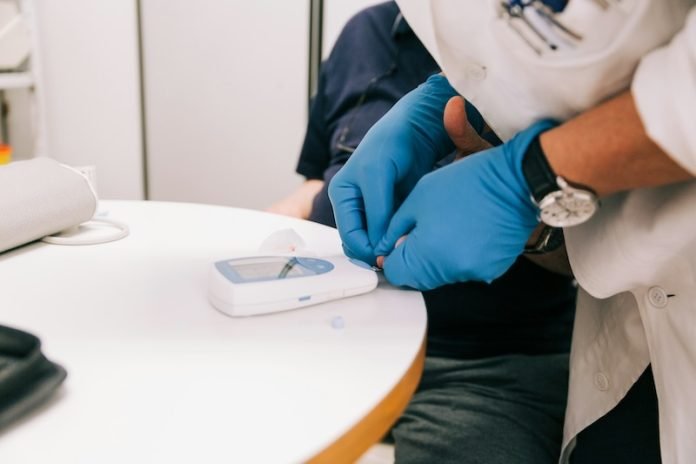
Diabetes is a common health condition that affects millions of people worldwide.
It occurs when the body either doesn’t produce enough insulin or can’t use the insulin it produces effectively. Insulin is a hormone that regulates blood sugar.
Without proper insulin function, blood sugar levels can rise to dangerous levels, leading to various short-term and long-term health issues.
This article explores how diabetes impacts the body, using plain language to make the information accessible to everyone.
Diabetes is mainly classified into two types: Type 1 diabetes, where the body’s immune system attacks and destroys the cells that produce insulin, and Type 2 diabetes, where the body doesn’t use insulin properly and eventually might not produce enough insulin.
Both types of diabetes lead to high blood sugar levels, which can cause a range of complications over time.
One of the most immediate effects of diabetes on the body is on blood sugar levels. High blood sugar (hyperglycemia) can cause symptoms like frequent urination, increased thirst, high levels of sugar in the urine, and sudden weight loss.
In the short term, very high blood sugar levels can lead to a dangerous condition called ketoacidosis, especially in Type 1 diabetes, where the body starts breaking down fats at a rate that is too fast for the body to process, leading to a buildup of acids in the bloodstream.
Over time, the effects of diabetes can be wide-ranging and severe. High blood sugar levels gradually damage the blood vessels, leading to an increased risk of several serious conditions. One of the most significant is cardiovascular disease.
Diabetes dramatically increases the risk of various cardiovascular problems, including coronary artery disease with chest pain (angina), heart attack, stroke, and narrowing of arteries (atherosclerosis).
Diabetes also affects the nervous system. High blood sugar levels can cause diabetic neuropathy, where the nerves throughout the body become damaged.
This damage can lead to tingling, numbness, burning, or pain that typically begins at the tips of the toes or fingers and gradually spreads upwards. If left untreated, you could lose all sense of feeling in the affected limbs.
The kidneys also suffer from the effects of diabetes. The organs are filled with tiny blood vessel clusters that filter waste from your blood.
Diabetes can damage this delicate filtering system. Severe damage can lead to kidney failure or irreversible end-stage kidney disease, which may require dialysis or a kidney transplant.
Eyes are another area where diabetes has a significant impact. Diabetic retinopathy is a diabetes complication that affects eyes. It’s caused by damage to the blood vessels of the light-sensitive tissue at the back of the eye (retina).
Initially, diabetic retinopathy may cause no symptoms or only mild vision problems. However, it can eventually lead to blindness.
Another complication of diabetes includes poor blood flow to the feet, which increases the risk of various foot complications. Cuts and blisters can become serious infections, which may heal poorly. These infections may ultimately require toe, foot, or leg amputation.
Managing diabetes effectively is crucial to minimize these long-term risks. Management includes maintaining blood sugar levels within the target range, which can be achieved through a combination of medications, insulin therapy, diet, and exercise.
Regular monitoring by health care providers, along with adherence to treatment plans, can help manage the disease and reduce the risk of complications.
In conclusion, diabetes has a profound impact on the body, affecting nearly every organ system. Understanding these effects is crucial for those diagnosed with diabetes, as effective management can significantly reduce the risk of complications and improve overall quality of life.
Early diagnosis and treatment are essential in preventing the diverse and potentially severe complications associated with this chronic condition.
If you care about diabetes, please read studies that MIND diet may reduce risk of vision loss disease, and Vitamin D could benefit people with diabetic neuropathic pain.
For more information about diabetes, please see recent studies that Vitamin E could help reduce blood sugar and insulin resistance in diabetes, and results showing eating eggs in a healthy diet may reduce risks of diabetes, high blood pressure.
Copyright © 2024 Knowridge Science Report. All rights reserved.



